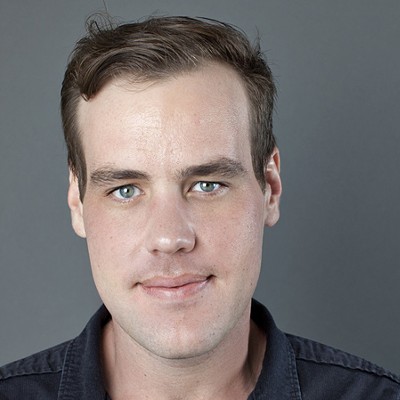Lack of belief doesn't necessarily mean lack of anything to study. That's the reasoning behind the University of Miami's decision to establish what is believed to be the world's first academic chair "for the study of atheism, humanism, and secular ethics." The school hasn't publically announced it yet, but several key players talked with the New York Times in advance.
The creation of the chair is part of a larger effort by new university president Julio Frenk to establish 100 new academic chairs in time for the school's centennial celebration in 2025, but the driving force behind the new title is millionaire retired businessman Louis J. Appignani. He's donated $2.2 million to fund the chair.
"I’m trying to eliminate discrimination against atheists," Appignani told the Times. "So this is a step in that direction, to make atheism legitimate."
Apprignani, now an 83-year-old Florida retiree, is the former president and chairman of the Barbizon International modeling school. Raised Catholic, Apprignani turned to atheism in college and has since created a foundation to give to several secular and humanist causes. He's also previously sponsored two talks by noted atheist Richard Dawkins at the University of Miami.
While a few other schools have programs specifically studying secularism and humanism, the addition of the word "atheism" to the title was apparently controversial.
"We didn’t want anyone to misunderstand and think that this was to be an advocacy position for someone who is an atheist,” Thomas J. LeBlanc, UM's provost told the Times. “Our religion department isn’t taking an advocacy position when it teaches about Catholicism or Islam. Similarly, we’re not taking an advocacy position when we teach about atheism or secular ethics.”
An internal effort to change the name to "philosophical naturalism" was squashed, but the addition of "humanism and secular ethics" was added as an appeasement.
The creation of the chair in Miami is an interesting proposition. Miami has the seventh most Catholic population of any city in the nation. Thirty-one percent of the population claims to be Catholic.
Though, according to a recent analysis by the Public Religion Research Institute, Miami is also one of the most irreligious cities in the country as well. Twenty-four percent of Miamians claim no affiliation with a church the study found, making us the 12th "most Godless" city in America.
Most of the rest of the city is some form of Protestant. Though, just 5 percent consider themselves Evangelical Protestants (i.e. the born-again crowd), slightly less than the 6 percent of the city that is Jewish.
In any event, Miami's growing percentage of irreligious residents is part of a wider national trend, and certainly illustrates the need for the study of those who forgo traditional religion or outright reject it.
[
{
"name": "Air - MediumRectangle - Inline Content - Mobile Display Size",
"component": "19274298",
"insertPoint": "2",
"requiredCountToDisplay": "2"
},{
"name": "Editor Picks",
"component": "17482312",
"insertPoint": "4",
"requiredCountToDisplay": "1"
},{
"name": "Inline Links",
"component": "18711090",
"insertPoint": "8th",
"startingPoint": 8,
"requiredCountToDisplay": "7",
"maxInsertions": 25
},{
"name": "Air - MediumRectangle - Combo - Inline Content",
"component": "17482310",
"insertPoint": "8th",
"startingPoint": 8,
"requiredCountToDisplay": "7",
"maxInsertions": 25
},{
"name": "Inline Links",
"component": "18711090",
"insertPoint": "8th",
"startingPoint": 12,
"requiredCountToDisplay": "11",
"maxInsertions": 25
},{
"name": "Air - Leaderboard Tower - Combo - Inline Content",
"component": "17482313",
"insertPoint": "8th",
"startingPoint": 12,
"requiredCountToDisplay": "11",
"maxInsertions": 25
}
]











